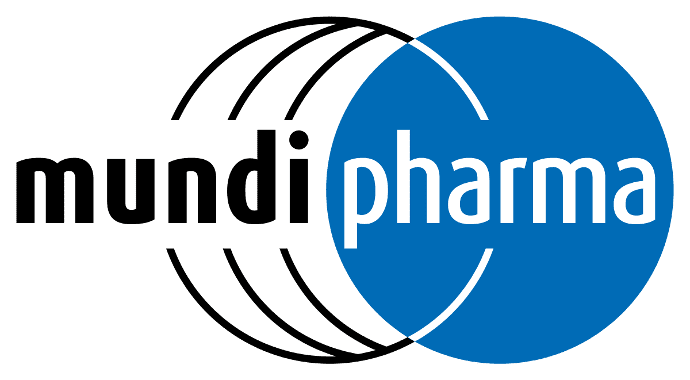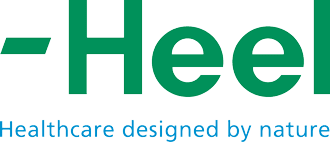Preserving Lives and Driving Innovation:
The Essential Role of the Pharmaceutical Industry
The Essential Role of the Pharmaceutical Industry
The pharmaceutical industry plays a crucial and central role, saving lives, conducting important medical research and promoting public health.
The vital role of the pharmaceutical industry
The pharmaceutical industry plays a vital role in society, dedicated to improving public health through the development, manufacturing, and distribution of life-saving drugs. However, behind the scenes, this industry faces an array of complex challenges that can impact its ability to deliver safe, effective, and affordable medications.
Behind the scenes, however, this industry faces a number of complex challenges that can affect the delivery of safe, effective and affordable medicines. Below are some of the key challenges facing the pharmaceutical industry and possible solutions to overcome them.
Research and Development Costs
The process of developing a new drug is a lengthy and expensive endeavor. Pharmaceutical companies invest heavily in research and development (R&D), which includes preclinical testing, clinical trials, and regulatory approval.
These costs can reach billions of dollars per drug, and the failure rate is high, with only a small percentage of experimental drugs making it to market. This financial burden places significant pressure on pharmaceutical companies to ensure a return on their investment.
Stringent Regulatory Frameworks
Pharmaceutical products are subject to stringent regulations and oversight by regulatory authorities worldwide. While these regulations are necessary to ensure the safety and efficacy of drugs, they also pose challenges for the industry.
The lengthy approval process and rigorous testing requirements can delay drug development timelines and increase costs. Striking a balance between patient safety and timely access to innovative therapies remains an ongoing challenge for regulators and pharmaceutical companies alike.
Intellectual property and expiry of patents
Intellectual property rights and patents are essential for incentivizing pharmaceutical companies to invest in R&D.
However, these patents have limited lifespans, typically ranging from 10 to 20 years. Once a patent expires, generic drug manufacturers can enter the market, leading to a significant decline in revenue for the original pharmaceutical company. This "patent cliff" poses a challenge for the industry, as companies must continually innovate and develop new drugs to sustain profitability.
Pricing and Access to Medications
The high cost of prescription drugs has become a subject of widespread concern and debate. Balancing the need for affordable access to medications with the financial viability of pharmaceutical companies is a complex challenge.
Factors such as R&D costs, manufacturing expenses, and pricing strategies contribute to the overall cost of drugs. Additionally, access to medications is a global issue, with disparities in healthcare infrastructure and affordability across different regions and countries.
Counterfeit Drugs and Supply Chain Security
Counterfeit drugs pose a significant threat to public health and patient safety. Criminal organizations exploit weaknesses in the pharmaceutical supply chain, resulting in the distribution of fake or substandard medications.
Ensuring the integrity of the supply chain and implementing robust anti-counterfeiting measures is an ongoing challenge for the pharmaceutical industry.
Technological Advancements and Data Management
The pharmaceutical industry is rapidly evolving with advancements in technology, such as artificial intelligence, machine learning, and precision medicine.
Adopting and integrating these technologies into existing workflows can be challenging, requiring significant investments in infrastructure, data management systems, and employee training.
Furthermore, data privacy and security concerns must be addressed to maintain patient confidentiality and protect sensitive information.
The pharmaceutical industry faces a multitude of challenges that impact drug development, pricing, access, and patient safety. Overcoming these challenges requires collaboration among stakeholders, including pharmaceutical companies, regulatory authorities, healthcare providers, and patient advocacy groups.
Striking a balance between innovation, affordability, and patient-centric healthcare remains a paramount goal. By addressing these challenges head-on and embracing emerging technologies, the pharmaceutical industry can continue to drive medical advancements and improve global public health.
The pharmaceutical industry faces a multitude of challenges that impact drug development, pricing, access, and patient safety. Overcoming these challenges requires collaboration among stakeholders, including pharmaceutical companies, regulatory authorities, healthcare providers, and patient advocacy groups.
Striking a balance between innovation, affordability, and patient-centric healthcare remains a paramount goal. By addressing these challenges head-on and embracing emerging technologies, the pharmaceutical industry can continue to drive medical advancements and improve global public health.
As an international IT company, we have a unique opportunity to contribute to overcoming the challenges faced by the pharmaceutical industry. By leveraging our expertise and innovative solutions, we can support the industry in several key areas:
Data Management and Analysis
Data Management and Analysis
Data Management and Analysis: RSG can develop robust data management systems and advanced analytics tools to help pharmaceutical companies effectively organize, analyze, and derive valuable insights from their vast datasets.
This can expedite the drug discovery process, enhance clinical trial design and monitoring, and enable more personalized approaches to patient care.
Regulatory Compliance
Regulatory Compliance
Navigating complex regulatory frameworks is a daunting task for pharmaceutical companies. We can provide regulatory compliance solutions that facilitate adherence to guidelines and streamline the approval process.
This can help accelerate the development and launch of new drugs while maintaining high safety standards.
Patient-centric Solutions
Patient-centric Solutions
Improving patient access to medications and enhancing the overall healthcare experience is a shared goal.
Our IT experts can enable telemedicine platforms, remote patient monitoring, and personalized healthcare applications that empower patients to manage their health effectively. By fostering patient engagement and empowerment, we can contribute to better healthcare outcomes.
Digital Transformation
Digital Transformation
Embracing digital technologies can revolutionize the pharmaceutical industry.
Our IT solutions can assist in streamlining operational processes, improving supply chain management, and enhancing communication and collaboration among stakeholders. This digital transformation can lead to cost savings, increased efficiency, and better patient outcomes.
Cybersecurity and Supply Chain Integrity
Cybersecurity and Supply Chain Integrity
Protecting the pharmaceutical supply chain from counterfeit drugs and ensuring data security is paramount.
We can develop robust cybersecurity measures and implement blockchain technology to enhance traceability and transparency throughout the supply chain. This will help safeguard patient safety and maintain the integrity of the pharmaceutical ecosystem.
Collaboration and Knowledge Sharing
Collaboration and Knowledge Sharing
The challenges faced by the pharmaceutical industry require collaborative efforts.
As an IT company, we can facilitate knowledge sharing platforms, forums, and conferences to foster collaboration among pharmaceutical companies, regulators, healthcare providers, and patient advocacy groups. This exchange of ideas and best practices can accelerate innovation and drive collective solutions.
Conclusion
By working hand in hand with the pharmaceutical industry, our international IT company can play a pivotal role in helping overcome the challenges it faces.
Through technological advancements, data-driven insights, regulatory compliance support, and patient-centric solutions, we can contribute to a more efficient, affordable, and patient-focused pharmaceutical ecosystem. Together, we can shape a better future for the industry, where life-saving medications are accessible, safe, and transformative.







